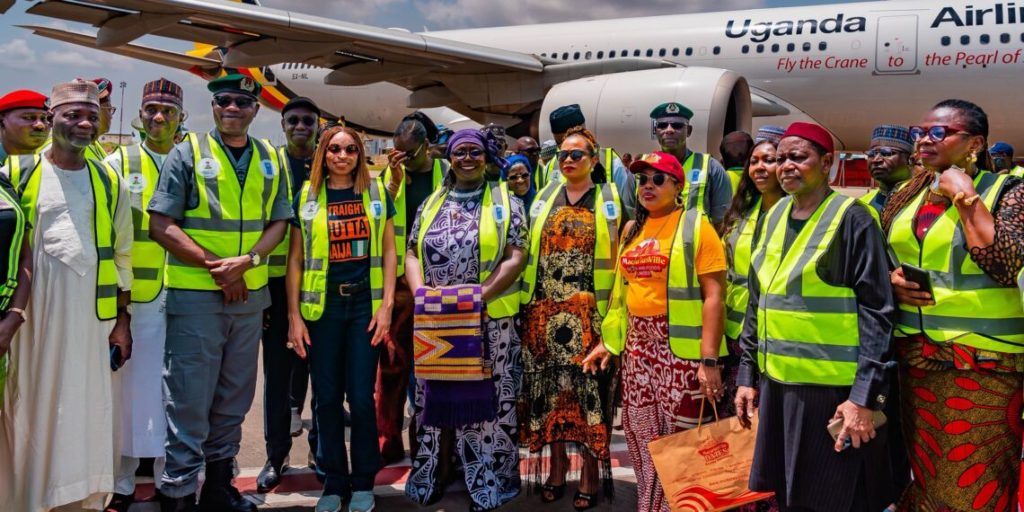Nigeria opens AfCFTA air corridor to Kenya, Uganda, South Africa, cutting export costs by up to 75%

Nigeria Unveils AfCFTA Air Corridor to Boost Exports and Slash Logistics Costs
Nigeria has launched a new air corridor under the African Continental Free Trade Area (AfCFTA) framework to enhance exports to major African markets—Kenya, Uganda, and South Africa—while aiming to reduce logistics costs for Nigerian exporters by as much as 50% to 75%.
The announcement was made on Sunday by Dr. Jumoke Oduwole, Minister of Industry, Trade, and Investment, via her official X (formerly Twitter) account.
She explained that the air corridor, operated in partnership with Uganda Airlines, is a strategic move to streamline the movement of Nigerian goods into AfCFTA markets by minimizing transport costs and logistical barriers.
“In celebration of Africa Day, we are launching a game-changing air corridor that connects Nigerian exports to AfCFTA markets through Uganda Airlines, reducing logistics costs by up to 75%. This paves the way for improved trade with Uganda, Kenya, and South Africa,” Oduwole said.
The corridor is designed to facilitate the export of Nigerian-made products such as textiles, agro-products, and cosmetics, enabling local businesses to expand across the continent more competitively.
Additionally, the government confirmed that AfCFTA tariffs have now been officially published, unlocking preferential rates for Nigerian exporters and further opening trade opportunities within the agreement.
The Ministry reaffirmed its dedication to supporting local businesses in scaling their operations across Africa, emphasizing this air corridor as a vital step in Nigeria’s broader AfCFTA implementation strategy.
Context: What You Should Know
The African Continental Free Trade Area (AfCFTA) is a landmark trade agreement aimed at creating a unified African market for goods and services, promoting economic integration and intra-African trade.
In April 2025, Nigeria formally gazetted and submitted its ECOWAS Tariff Schedule for Goods to the AfCFTA Secretariat, enabling zero-duty trade on 90% of goods under the agreement. This move significantly strengthens Nigerian exporters’ access to markets across the continent.
The tariff cuts are part of a phased 10-year implementation plan that began in 2021. As of 2025, Nigeria has applied a 50% tariff reduction for trade with least-developed African countries and a 100% cut for developing nations.
Vice President Kashim Shettima highlighted in April 2025 that the AfCFTA Digital Trade Protocol aims to raise intra-African trade from 18% in 2022 to 50% by 2030.
The launch of this air corridor also aligns with Nigeria’s efforts to expand digital trade and support small businesses and tech-driven exporters, further reinforcing the country’s leadership in AfCFTA execution.






